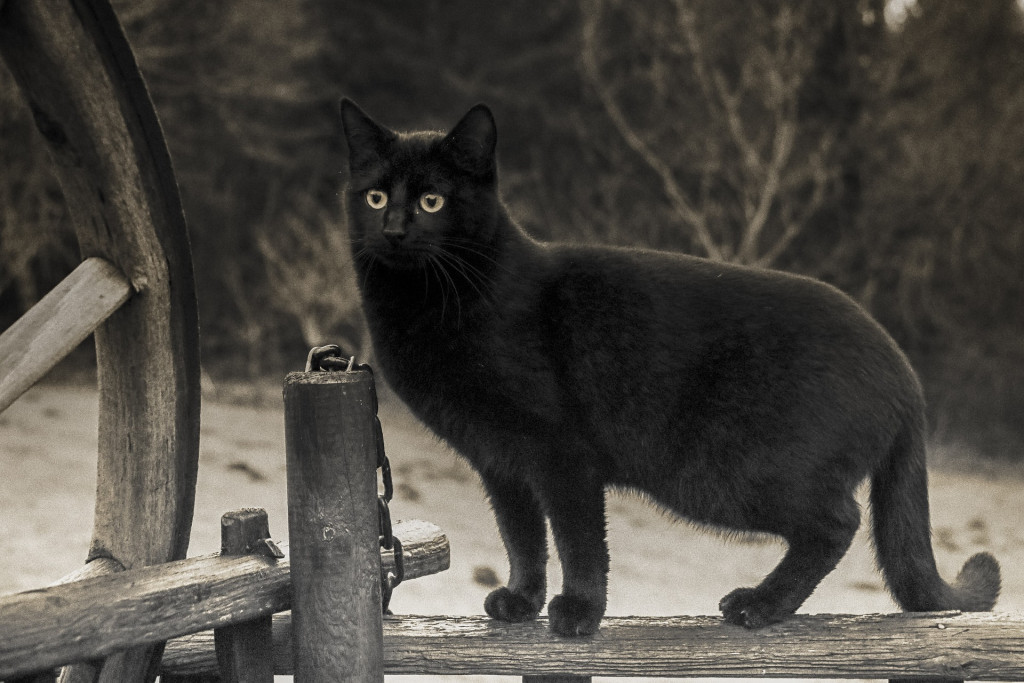Superstitions can serve to ease fear and anxiety about the unknown, and comfort people when they feel insecure.
Luck, in all of mankind’s inquiries into its workings, has found many ways to manifest itself–black cats, the occurrence of the number 13, horseshoes, four-leaved clovers… the list is far too long to remember them all.
However, luck is perhaps out of vogue these days, as our scientific understanding of the physical world seems to be telling us that the black cat who crossed your path this morning has nothing to do with you spilling your tea all over yourself ten minutes later.

What Are Superstitions?
Superstitions are practices, beliefs and attributions that emanate from an alternate understanding of events—often inexplicable ones. They are seen as irrational, supernatural or unscientific by those who witness them from outside. To them, superstitions are more or less rooted in hocus-pocus, perceived magic and fatalism.
Superstitions are flawed perceptions of events that aren’t patently explainable. When there are holes in our cognition that have no rational answers, we fill them up with irrational ones. So, if you were walking on a street and a black cat crossed your path, and you spilled tea immediately after, you may start associating black cats with bad luck.
The next time our feline friend comes your way, and you then bump your head or stub your toe, your mind will immediately go back to the association and reinforce it as an explanation.

Also Read: Why Do We Believe In Superstitions Even Though We Know They’re Irrational?
Can Superstitions Serve A Purpose?
Superstitions do serve a very important function when they are shared by a group of people, especially if the superstitions happen to be long-established ones. In a community that shares a superstition, the shared beliefs induce a sort of solidarity among its members. People generally tend to stick around and appreciate other people who validate their beliefs or actions by sharing them.
So, if a community believes that by dancing to the pleasure of the rain deities, droughts can be warded off, then they will come together in the act of this shared belief and action.
Superstitions in this way have cultural or historical value, and therefore serve as a means to relate with one’s heritage and community.

Also Read: What Are Some Superstitions Involving Animals?
Can Superstitions Be Beneficial?
Superstitions are two-faced. If you look at them in the short term, they bring comfort to those who believe in them. Much like a placebo effect, superstitions give some sort of reassurance, sometimes even acting as a scapegoat, when things aren’t going that well, and some sort of causal explanation when they are (in the sense of a good luck charm or activity).
They induce a false sense of security, such that forces outside your control become responsible for what happens in your life. The only thing you can do then, is to appease, involve or avoid these forces in order to achieve what you want (for example, on the day of your next job interview, you avoid black cats).
In fact, to avoid the bad mojo of the supernatural, something that perhaps stems from the unknowable or unverifiable nature of what is beyond one’s control, superstitions produce a physical manifestation of an abstract idea, making it less scary.
Warding off evil through gestures, using lemons or garlic to keep out sinister forces, and hanging dreamcatchers to keep nightmares at bay all work to ease the mind, rather than actually fight off ill will and monsters.

Can Superstitions Be Detrimental To Those Who Believe?
In the long run, they can lead to stagnant opinions about events, in an unhealthy or fatalistic way, wherein accountability can be shifted from circumstance to supernatural (quite illogically too).
So, anytime you come to heads with a black cat and subsequently something unfortunate happens, your mind will straight away go back to the cat and blame it, instead of rationally and collectedly considering and understanding why things went wrong.
This is a problem, especially when the superstition in question propagates violence or cruelty. When superstitions develop into blind faith in forces beyond control in any shape or form, they may encourage internecine activities. They could start suppressing rational thinking in favor of actively ignoring science and common sense. Additionally, this blind faith can even be exploited to manipulate those who believe.

Superstitions, however, need not be all bad. Sometimes positive superstitions (like finding a four-leaved clover) can lead to positive associations. It may be so that a superstitious (but fortuitous) event motivates and reassures that person. If an athlete, for example, finds that wearing his lucky charm helps him win, then by wearing the lucky charm on the day of his next match, he may be motivated to perform better.
Conclusion
Superstitions may make you feel protected and can come in handy when you need an immediate reason for something, but truth be told, a little introspection never hurt anyone. A dash of reality, along with a hint of the supernatural (based on individual preferences, of course) goes a long way.
How well do you understand the article above!

References (click to expand)
- Ng, T., Chong, T., & Du, X. (2010, June). The value of superstitions. Journal of Economic Psychology. Elsevier BV.
- https://skepticalinquirer.org/wp-content/uploads/sites/29/2019/03/Issue-04-1.pdf#page=20
- Damisch, L., Stoberock, B., & Mussweiler, T. (2010, May 28). Keep Your Fingers Crossed!. Psychological Science. SAGE Publications.
- EE Levitt. (1952) Superstitions. JSTOR
